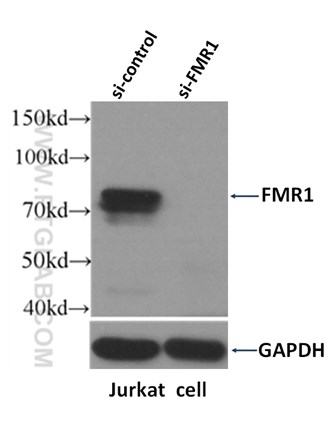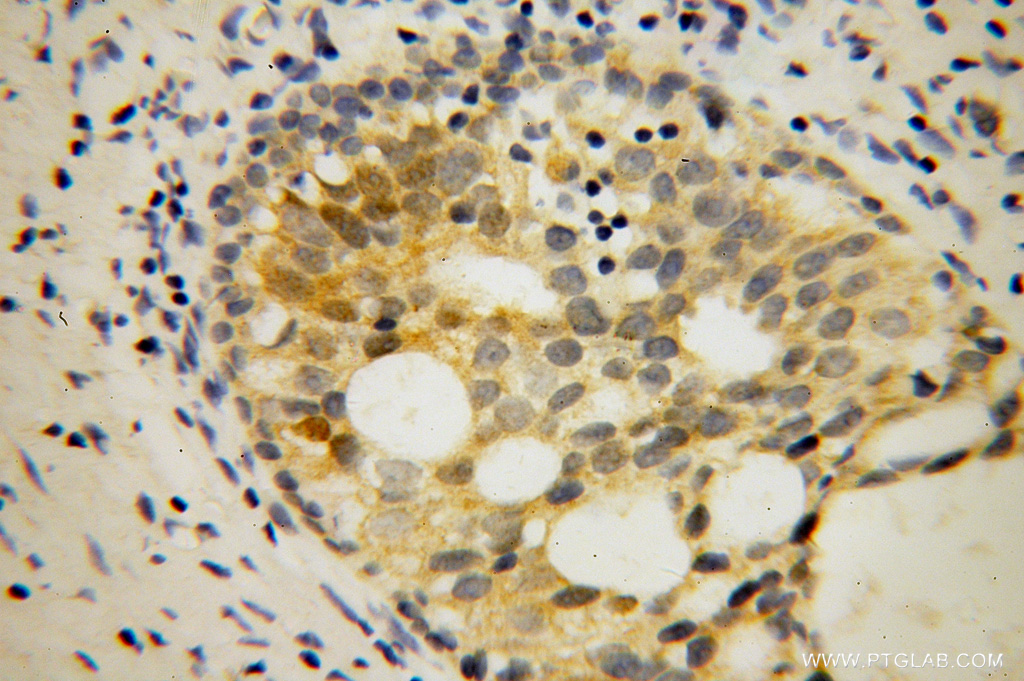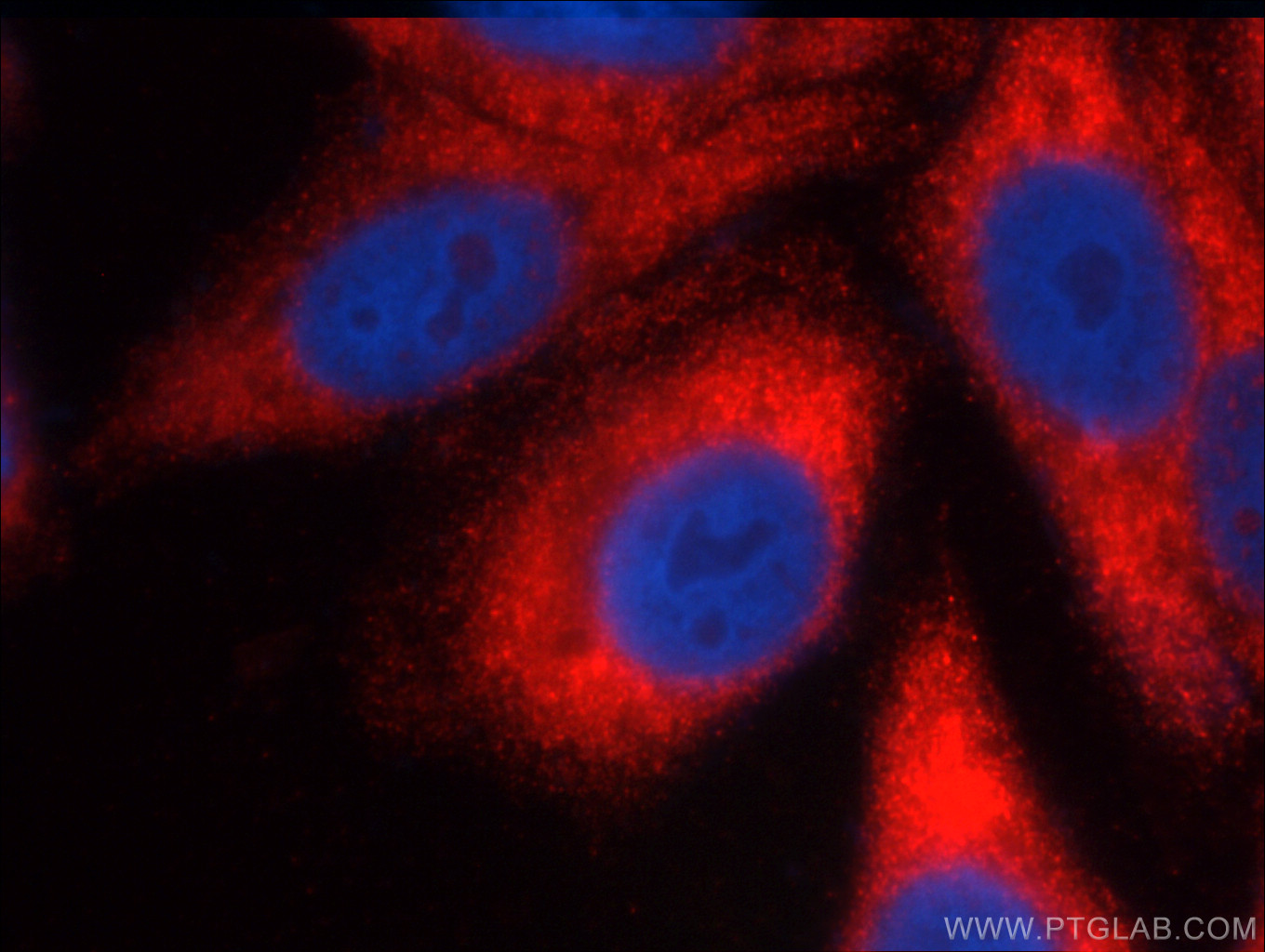FMRP Antibody
(FMRP) FMR1: a synaptic regulator in cognitive functions
(FMRP) FMR1
(FMRP) FMR1 is strongly expressed in neurons, testis, ovaries, placenta, or lymphocytes. This selective RNA-binding protein forms a messenger ribonucleoprotein complex that associates with polyribosomes, implicated in repression of translation.
(FMRP) FMR1 is also a component of the CYFIP1-EIF4E-FMR1 complex that binds to the mRNA. It has a role in the transport of mRNA from the nucleus to the cytoplasm, binding strongly to poly (G), less to poly (U), and very slightly to poly (A) and (C).
|
Antibody |
Type |
Catalog number |
Applications |
|
|
Rabbit Polyclonal
|
|
ELISA, WB, IP, IHC, IF
|
 |
|
WB result of FMR1 antibody (13755-1-AP, 1:1500) with si-Control and si-FMR1 transfected Jurkat cells. The FMR1 gene has many isoforms with MW 59-72 kDa. |
 |
|
Immunohistochemical of paraffin-embedded human gliomas using 13755-1-AP FMR1 antibody at dilution of 1:100 (under 40x lens). |
 |
|
Immunofluorescent analysis of fixed HepG2 cells using 13755-1-AP (FMR1 Antibody). |
FMRP plays a central role in neuronal development and synaptic plasticity, being important for learning and memory.
- FMRP is involved in the development of cortical circuits.
- FMRP participates in the DNA damage response in a chromatin-dependent manner.
- FMRP abnormalities result in meiotic defects including incomplete chromosome pairing.
(FMRP) FMR1-Related Diseases
Fragile X syndrome (FXS) is caused by expansion of the CGG trinucleotide repeat in the FMR1 gene. It is a multigenerational disorder with a strong effect not only on individuals but also on their families. It is the second most common intellectual disability after Down’s syndrome.
FXS is a late-onset condition in males (and some females) who have an FMR1 premutation and results in balance, tremor, and memory problems.
FMR1-related POI (age at cessation of menses < 40 years) is characterized by decreased ovarian function, which can lead to infertility and early menopause in approximately 20% of females who have an FMR1 premutation.
Disease-related studies of (FMRP) FMR1
2. Transcriptional Reactivation of the FMR1 Gene. A Possible Approach to the Treatment of the Fragile X Syndrome.
3. New Genetic Clues Found in Fragile X Syndrome, Neuroscience News